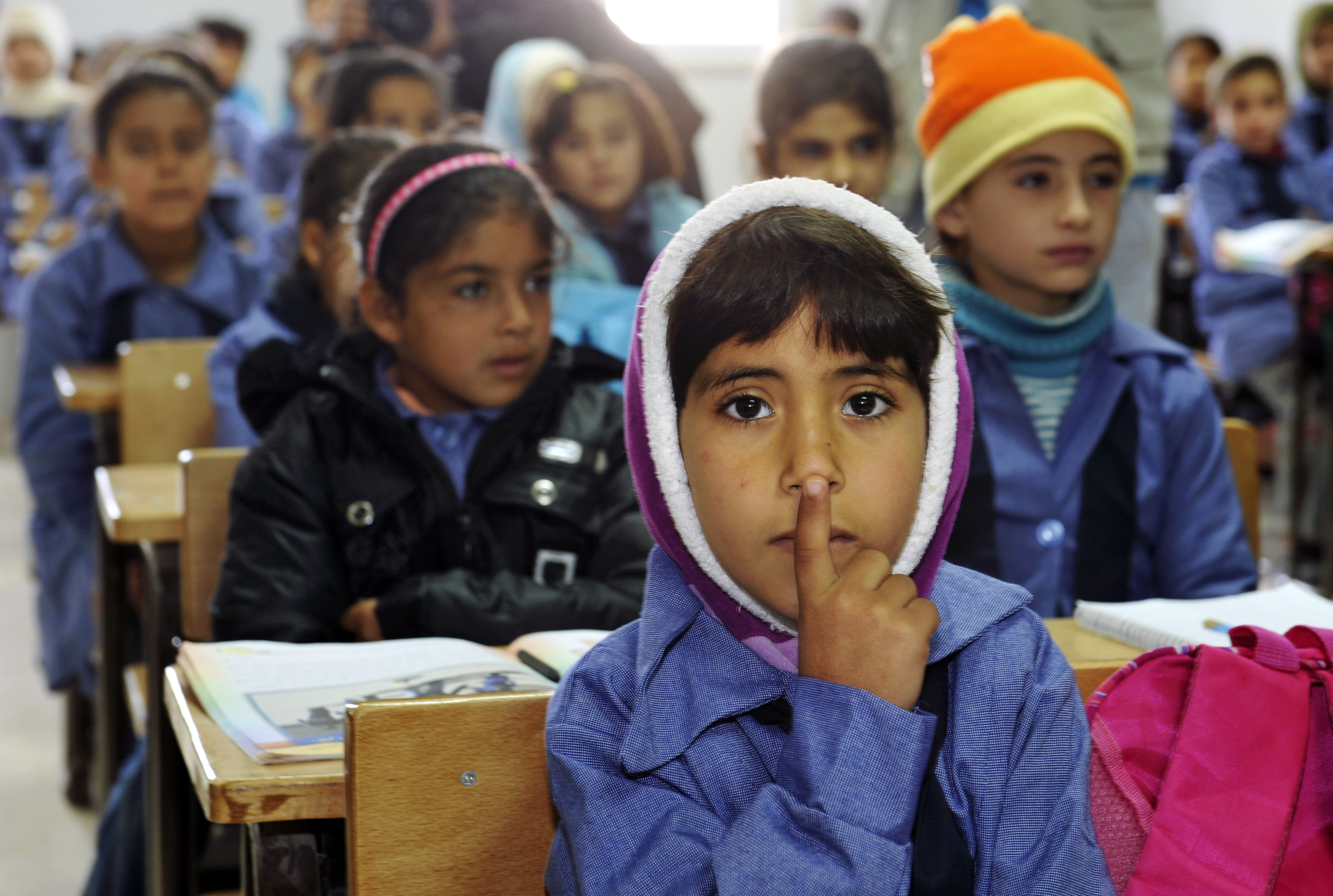In March 2013, among the overcrowded chaos of the Zaatari refugee camp in Jordan, American psychiatrist Dr. James Gordon watched as refugee children clung to their mothers, too afraid to leave their sides. Upon speaking with these women, Dr. Gordon discovered that the children were deeply affected by the violence they had witnessed and the loss of family members in their home country of Syria. Many of these children had trouble sleeping, frequently wet the bed, and refused to leave the sides of their caretakers. Some even began to cry upon hearing the voices of men because they reminded them of the voices of soldiers on war-torn Syrian streets.
Research on the European refugee crisis has gifted us a plethora of statistics analyzing the enormous mass migration. Frontex estimated the number of refugees and migrants to have crossed European borders at over 1,000,000 in 2015 alone. The highest number of refugees came from Syria: more than 350,000 Syrians submitted first-time applications for asylum. In September of that same year, it was estimated that 25 percent of asylum seekers were children. And although these numbers may not be surprising to those who follow news about the refugee crisis, one statistic has consistently been absent from media coverage: the percentage of refugees who suffer from mental health issues. Yet in Germany, the EU country with the highest resettlement numbers, an estimated 50 percent of refugees suffer from mental health issues, with 1 in 5 children affected and minors on their own particularly at risk.
These mental health issues are caused primarily by the traumatic experiences of refugees in their home countries, during their journey to Europe and during their integration into European society. Refugees suffer through harrowing voyages across the Mediterranean in small, packed boats, manned by violent smugglers and threatened with capsizing, chaotic stays in overwhelmed processing centers and resettlement camps plagued by violence and poverty, and discrimination and xenophobia as they attempt to adapt to new languages and customs — it should come as no surprise that they are afflicted with high levels of mental health problems. Crucially, refugee children suffer from mental health issues at alarmingly high rates. These children, who were exposed to extreme violence and brutality during critical developmental periods, are much more prone to depression, anxiety, aggressive behavior, as well as problems with physical health.
As a result, it seems apparent that refugees should access desperately needed public mental healthcare to aid them in their recovery. Unfortunately, in many EU countries, these kinds of support systems are not comprehensively available to refugees, or are otherwise lacking, although the situation is gradually improving. There are few clinics dedicated exclusively to mental healthcare for refugees in Europe—many of these are understaffed or employ specialists facing significant language barriers. Moreover, these clinics are far too few in number to realistically meet the need for their services; there remains a strong stigma surrounding those affected by mental illness, which makes it difficult for many to come forward to receive treatment, an attitude that in turn contributes to a a serious lack of funding. Further complicating things, refugees may potentially distrust or fear European doctors, which means they would rarely take advantage of the scant resources available to them.
In the debates that have ensued regarding this issue, one argument prevails: the EU simply cannot afford to place mental healthcare atop its list of priorities regarding refugee resettlement. The WHO continues to be underfunded, and many countries need more resources in order to provide refugees with food and shelter. While it is undoubtedly true that there are other issues of fundamental importance, the EU simply cannot afford to sideline mental healthcare. The frequency and intensity of mental health issues among refugees today may have huge ramifications in both the near and distant future. For example, adults who suffer from such afflictions as PTSD have a greater chance of engaging in aggressive and violent behavior. This mental health issue, as well as others like depression and paranoia, can also manifest in social anxieties and difficulties communicating or adapting to new situations. Finally, if these problems are left untreated, those afflicted are at a higher risk for suicide.
Perhaps of even greater importance is the question of how mental health issues may impact the development of children, who are disproportionately affected by them. Children with mental health issues are likely to experience great difficulties acclimating to new situations and environments. This difficulty is especially harmful as they attempt to integrate into European schools, universities, job markets, and communities. Left untreated, these issues may manifest in violent and aggressive behavior similar to those that manifest themselves in adults. Still, rather than receiving necessary help in Europe, refugee children continue to be exposed to harassment and violence, which only worsens the problem at hand.
In order to combat these issues and their consequences, the EU must make changes that significantly alter the current system. The European Psychiatric Association highlights many of these necessary improvements, such as guaranteeing mental health care to all refugees, standardizing procedures for care, providing specialized education to those who will be administering care, and ensuring the easy and efficient diffusion of knowledge and research across the EU. Importantly, as a precondition to any of these improvements, a concerted effort must be made to subvert cultural and lingual barriers through translation services and the reduction of stigma. EU countries must overcome regional and national differences and instead coordinate to direct funding towards these efforts, which require tremendous time, resources, and energy.
Though the ramifications of these circumstances may not be as immediate as starvation or fatal disease, they will certainly be felt — Europe cannot afford violent discord between refugees and EU citizens in a chaotic, post-refugee crisis world. But this is the direction in which we seem to be headed if the mental health of refugees continues to be neglected in the future in the same way that it is today.
Photo from the United Nations
